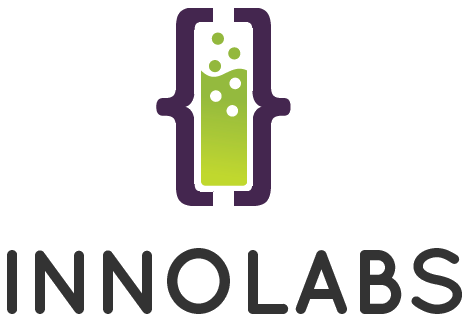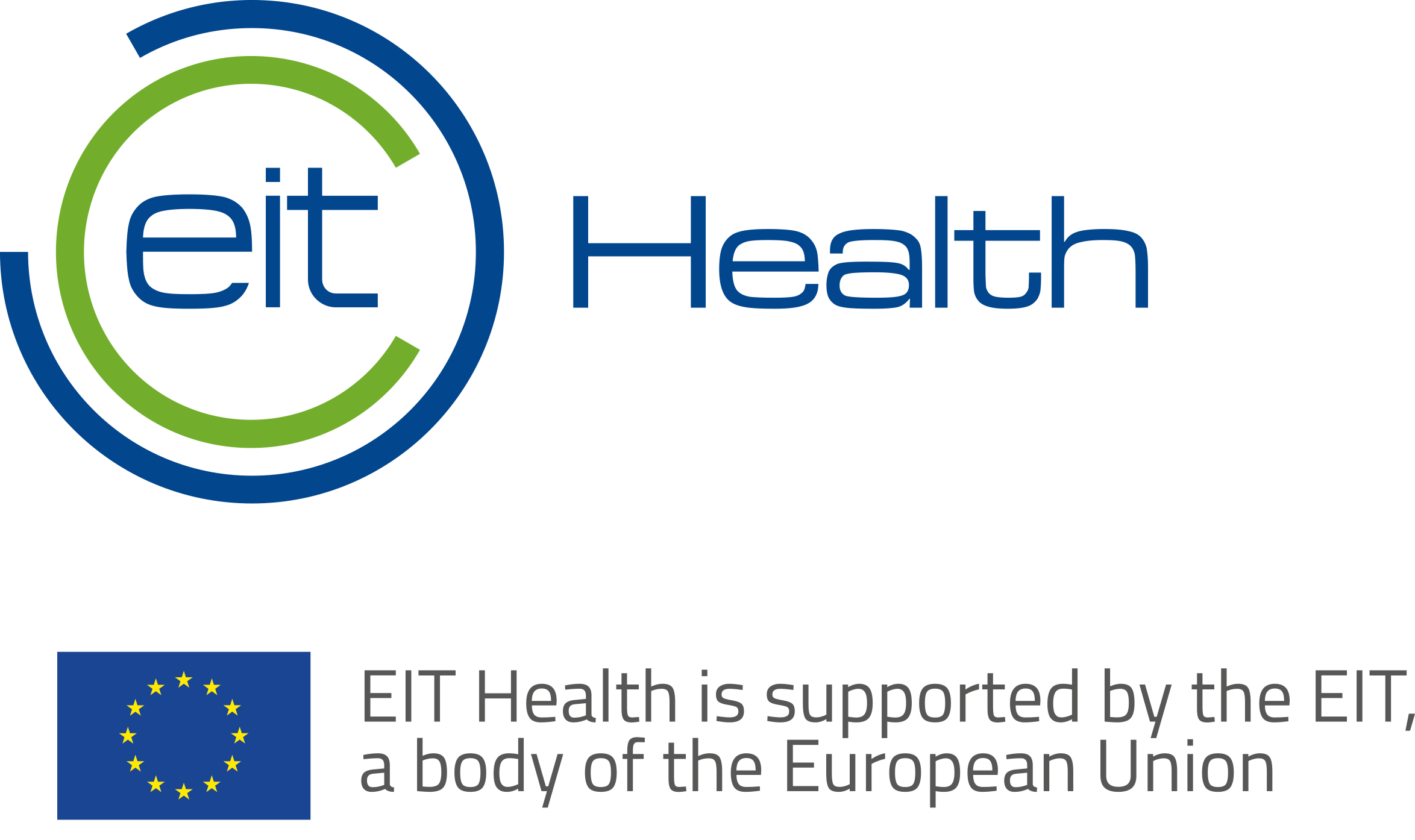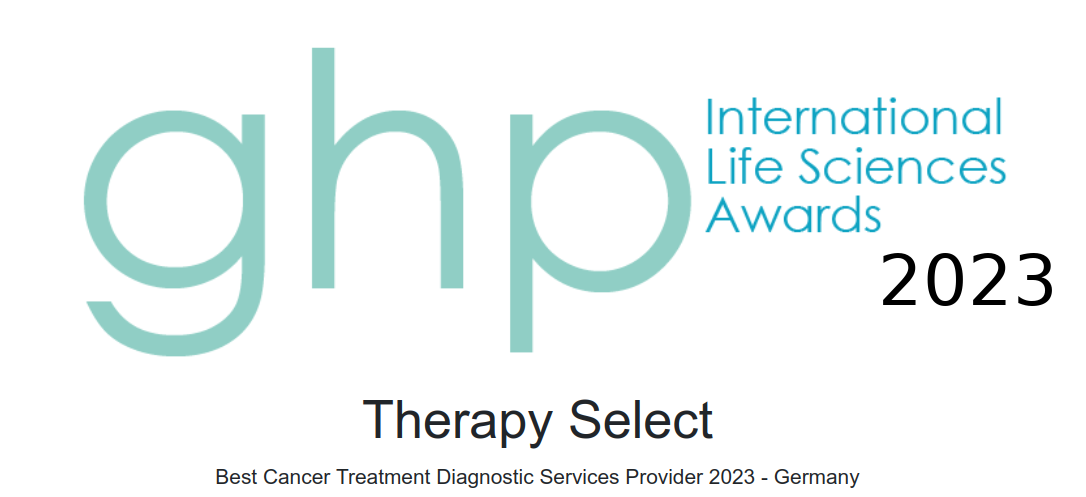Management and Scientific Direction

Dr. rer. nat. Frank C. Kischkel
Managing Director
Scientific Director
Tel: +49 - 6221 - 8936 - 157 (Office)
Fax: +49 - 6221 - 8936 - 158
Email: frank.kischkel [at] therapyselect [dot] de
Dr. Kischkel studied chemistry at the University of Münster, his doctorate was awarded to him at the German Cancer Research Center in Heidelberg for his work on apoptosis. Over the next years he was able to extend his knowledge about oncology, immunology and apoptosis as a researcher at Genentech, Inc. (South San Francisco, CA, USA) and as a group leader at meta-Gen GmbH in Berlin.
Dr. Kischkel possesses an excellent scientific reputation and relevant knowledge about oncology. He acquired this reputation and knowledge through a summa cum laude doctorate, work in two of the best laboratories in the world (Prof. Krammer, German Cancer Research Center (DKFZ), Heidelberg and Dr. Ashkenazi / Prof. Dixit, Genentech, Inc., South San Francisco, USA), publications in the best scientific journals (Cell, Nature, Immunity), the reward for a part of his work as one of the ten most important discoveries of the world in 1996 and the successful application of innovative technologies. (The discovery was remarkable in two ways. At first, the molecule caspase-8, which was discovered by Dr. Kischkel, was the first protein to be sequenced through new highly sensitive technologies and later found as a whole gene in the genome database. Secondly, caspase-8 turned out to be the missing puzzle piece in the signaling pathway for receptor-mediated apoptosis.)
50 years DKFZ – the anniversary issue of "einblick" lists the 20 most cited publications of the DKFZ – Dr. Frank Kischkel 2x named as first author within these publications
The German Cancer Research Center (DKFZ) was founded in 1964. For the 50 years in business celebration, an anniversary issue was released containing a list of the 20 most cited publications which were published by the DKFZ within this period of time. These publications include two articles, which were written by Dr. Frank Kischkel as first author during his time at the DKFZ. This award exclusively goes to publications which are of adequate scientific relevance as well as of adequate scientific quality. The magazine is available online. The most cited publications are listed on pages 16 and 17.
PhD Thesis
Publications
(direct links to Pubmed or the publication)
* Shared authorship
- Kischkel, F.C.*, Hellbardt, S.*, Behrmann, I., Germer, M., Pawlita, M., Krammer, P.H. and Peter, M.E. (1995). Cytotoxicity-dependent APO-1(Fas/CD95)-associated proteins form a death-inducing signalling complex (DISC) with the receptor. EMBO J. 14: 5579-5588.

- Chinnaiyan, A.M., Tepper, C., Lou, L., O'Rourke, K., Seldin, M.A., Kischkel, F.C., Hellbardt, S., Krammer, P. H., Peter, M.E. and Dixit, V M. (1996). FADD/MORT1 is a common mediator of Fas/APO-1- and tumor necrosis factor-induced apoptosis. J. Biol. Chem. 271: 4961-4965.

- Peter, M.E., Chinnayian, A., Hellbardt, S., Kischkel, F.C., Krammer, P.H. and Dixit, V.M. (1996). The CD95 (APO-1/Fas) associating signaling molecules. Cell Death and Differentiation 3: 161-170.
- Cahill, M.A., Peter, M.E., Kischkel, F.C., Chinnayian, A.M., Dixit, V.M., Krammer, P.H. and Nordheim, A. (1996). CD95 (APO-1/Fas) induces activation of SAP kinases downstream of ICE-like proteases. Oncogene 13: 2087-2096.
- Muzio, M.*, Chinnaiyan, A.M.*, Kischkel, F.C.*, O' Rourke, K.*, Shevchenko, A.*, Scaffidi, C., Zhang, M., Ni, J., Gentz, R., Mann, M., Krammer, P.H., Peter, M.E. and Dixit, V.M. (1996). FLICE, a novel FADD-homologous ICE/CED-3-like protease, is recruited to the CD95 (Fas/APO-1) death-inducing signaling complex (DISC). Cell 85: 817-827.

- Medema, J.P., Scaffidi, C., Kischkel, F.C., Shevchenko, A., Mann, M., Krammer, P.H. and Peter, M.E. (1997). FLICE is activated by association with the CD95 death-inducing signaling complex (DISC). EMBO J. 16: 2794-2804.

- Peter, M.E.*, Kischkel, F.C.*, Scheuerpflug, C.G., Medema, J.P., Debatin K.M. and Krammer, P.H. (1997) Resistence of cultured peripheral T cells towards activation-induced cell death involves a lack of recruitment of FLICE (MACH/caspase 8) to the CD95 death-inducing signaling complex. Eur. J. Immunol. 27: 1207-1212.
- Kischkel, F.C*, Kioschis, P.*, Weitz, S., Poustka, A., Lichter, P. and Krammer, P.H. (1998). Assignment of CASP8 to human chromosome band 2q33 -> q34 and Casp8 to the murine syntenic region on chromosome 1B-proximal C by in situ hybridization. Cytogenet. Cell. Genet. 82: 95-96.
- Peter, M.E., Scaffidi, C., Medema, J.P., Kischkel, F.C. and Krammer, P.H. (1998). “The death receptors” in Apoptosis, problems and diseases (Springer, Heidelberg), Ed.: Kumar, S., p 25-63.
- Pitti, R.M., Marsters, S.A., Lawrence, D.A., Roy, M., Kischkel, F.C., Dowd, P., Huang, A., Donahue, C.J., Sherwood, S.W., Baldwin, D.T., Godowski, P.J., Wood, W.I., Gurney, A.L., Hillan, K.J., Cohen, R.L., Goddard, A.D., Botstein, D. and Ashkenazai, A. (1998). Genomic amplification of a decoy receptor for Fas ligand in lung and colon cancer. Nature, 396:699-703.
- Peter, M.E., Scaffidi, C., Medema, J.P., Kischkel, F.C. and Krammer, P.H. (1999). The death receptors. Results Probl Cell Differ. 23:25-63

- Scaffidi, C., Kischkel, F.C., Krammer, P.H. and Peter, M.E. (2000). Analysis of the CD95 (APO-1/Fas) death-inducing signaling complex by high-resolution two-dimensional gel electrophoresis. Methods Enzymol. 322:363-373.
- Kischkel, F.C.*, Lawrence, D.A.*, Chuntharapai, A., Schow, P., Kim, K.J., and Ashkenazi, A. (2000). Apo2L/TRAIL-dependent Recruitment of Endogenous FADD and Caspase-8 to Death Receptors 4 and 5. Immunity. 12:611-620.

- Kischkel, F.C. and Ashkenazi, A. (2000) Combining Enhanced Metabolic Labeling with Immunoblotting to Detect Interactions of Endogenous Cellular Proteins. BioTechniques. 29:506-510.
- Kischkel, F.C., Lawrence, D.A., Tinel, A., Virmani, A., Schow, P., Gazdar, A., Blenis, J., Arnott, D., and Ashkenazi A. (2001) Death receptor recruitment of endogenous caspase-10 and apoptosis initiation in the absence of caspase-8. JBC. 276:46639-46.

- Virmani, A., Rathi, A., Sugio, K., Sathyanarayana, U.G., Toyooka, S., Kischkel, F.C., Tonk, V., Padar, A., Takahashi, T., Roth, J.A., Euhus, D.M., Minna, J.D., and Gazdar, A.F. (2003). Aberrant methylation of TMS1 in small cell, non small cell lung cancer and breast cancer. Int J Cancer. 106:198-204.
- Waldenmeier, D., Babarina, A., and Kischkel, F.C. (2003). Rapid in vitro chemosensitivity analysis of human colon tumor cell lines. Toxicology and Applied Pharmacology. Toxicol Appl Pharmacol. 132:237-245.
- Varfolomeev, E.*, Kischkel, F.*, Martin, F., Seshasayee, D., Wang, H., Lawrence, D., Olsson, C., Tom, L., Erickson, S., French, D., Schow, P., Grewal, I.S., and Ashkenazi A. (2004) APRIL-Deficient Mice Have Normal Immune System Development. Mol. Cell. Biol. 24: 997-1006.

- Maecker, H., Varfolomeev, E., Kischkel, F., Lawrence, D., LeBlanc, H., Lee, W., Hurst, S., Danilenko, D., Li, J., Filvaroff, E., Yang, B., Daniel, D., and Ashkenazi, A. (2005) TWEAK attenuates the transition from innate to adaptive immunity. Cell 123(5): 931-944.

- Boettcher, M., Kischkel, F., and Hoheisel, J.D. (2010) High-definition DNA methylation profiles from breast and ovarian carcinoma cell lines with differing doxorubicin resistance. PloS one 5(6): e11002.

Clinical Trials
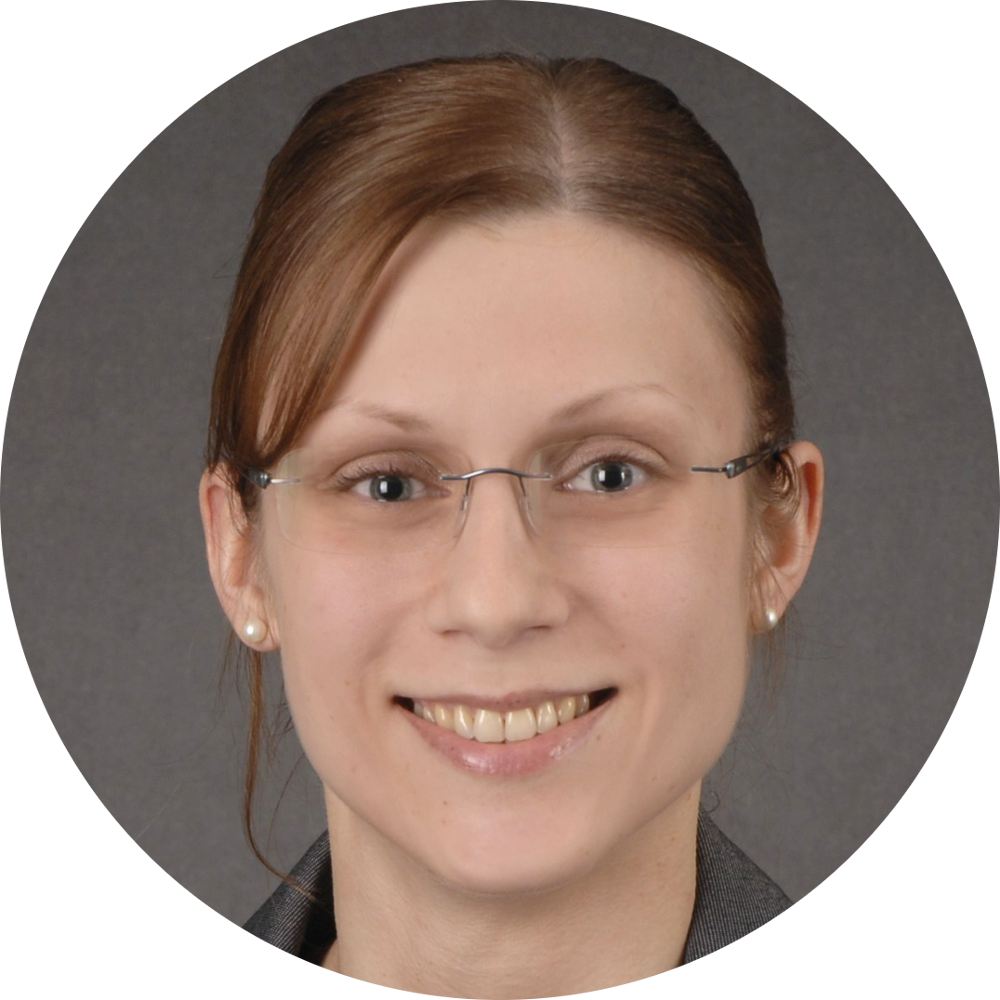
Dr. rer. nat. Julia Reiser
Tel: +49 (0)6221 - 8936 - 157 (Office)
Fax: +49 (0)6221 - 8936 - 158
Email: julia.reiser [at] therapyselect [dot] de
Dr. Julia Reiser studied biology at the University of Karlsruhe (now Karlsruhe Institute of Technology, KIT) and obtained her PhD from the University of Heidelberg for her work on constitutive and regenerative adult neurogenesis of zebrafish. Since 2016 she is a member of TherapySelect. Dr. Reiser exhibits several years of experience in laboratory work and is responsible for the further development of the CTR-Test. Furthermore, she possesses a profound scientific knowledge and is in charge of writing publications in order to publish the results of clinical studies or other projects from TherapySelect.
Product Management
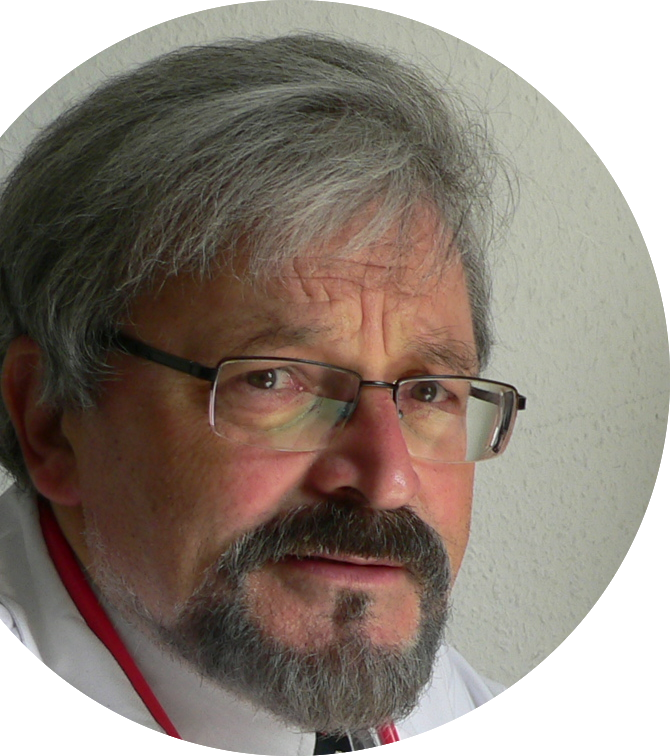
Dr. rer. nat. Wolfgang Grimm
Tel: +49 (0)6221 - 8936 - 157 (Office)
Fax: +49 (0)6221 - 8936 - 158
Email: wolfgang.grimm [at] therapyselect [dot] de
Dr. Wolfgang Grimm studied natural sciences at the University of Heidelberg and obtained his PhD in 1975 at the German Cancer Research Center (DKFZ, Heidelberg) in the group of Prof. Dr. F. Marks for his work on “cyclic 3'-5'-Adenosinmonophosphate in normal and hyperplastic epidermis of the mouse”. Afterwards he focused on the mechanism of activation of mouse macrophages in the group of Prof. Dr. D. Gemsa at the Institute for Immunology and Serology of the University of Heidelberg. In 1980 Dr. Grimm joined the division Diagnostics at Boehringer Mannheim, at first as a trainee in the product management, later as a trainer for diagnostics in the training center of the company. There he was responsible for the planning, organisation and implementation of national and international seminars for employees in Germany and abroad. In 1997 Boehringer Mannheim was taken over by the Hoffmann-La Roche AG as Roche Diagnostics. After that Dr. Grimm joined the direct marketing and was responsible for the marketing of new diagnostics in Eastern Germany. He presented products of the sector cardiology and oncology to important clinics. Since 2014 Dr. Grimm is responsible for product management and marketing of the CTR-Test at TherapySelect.

